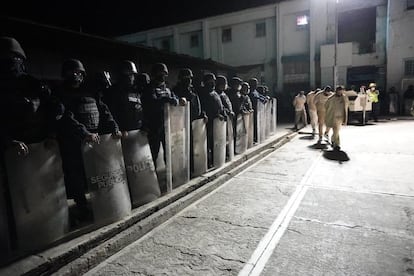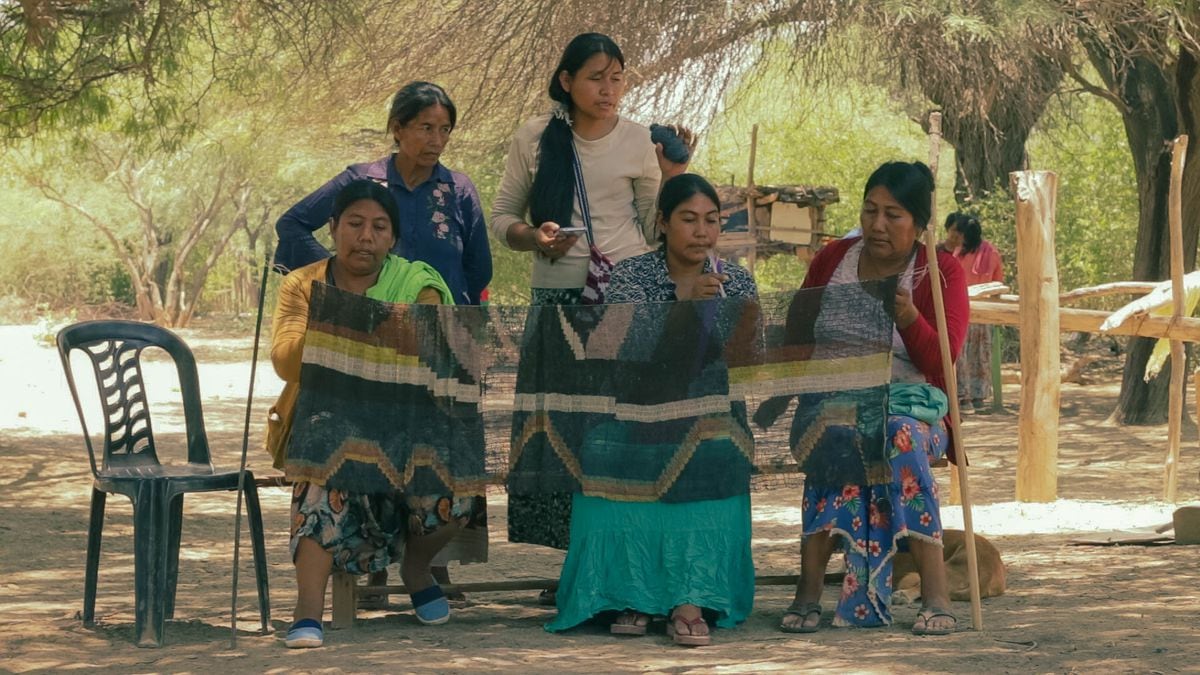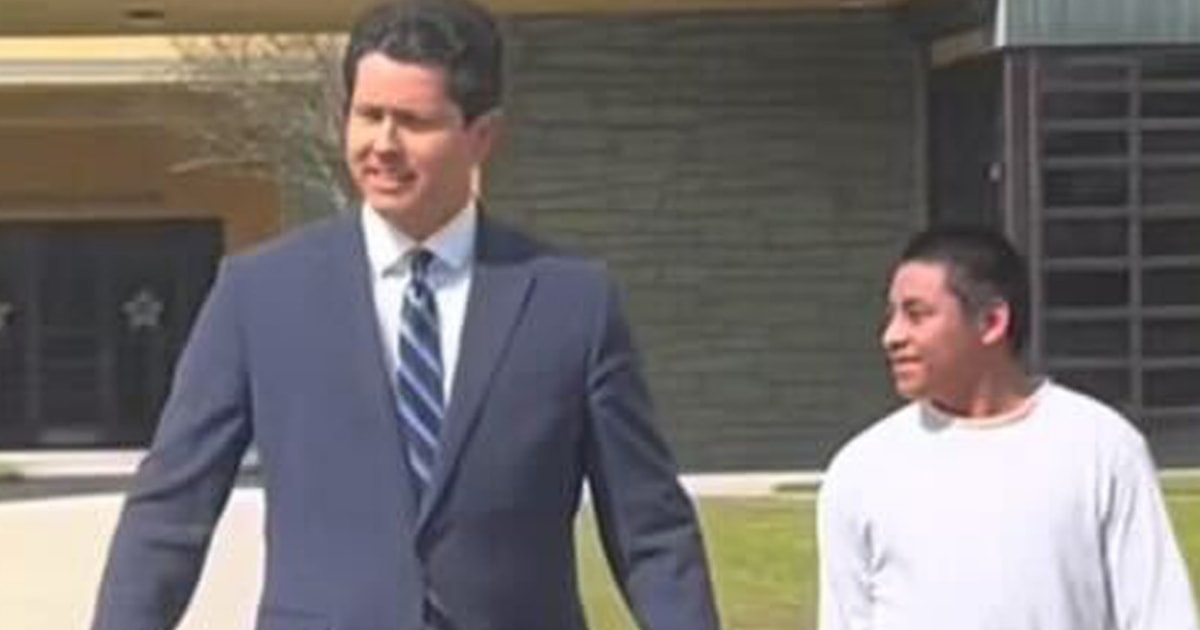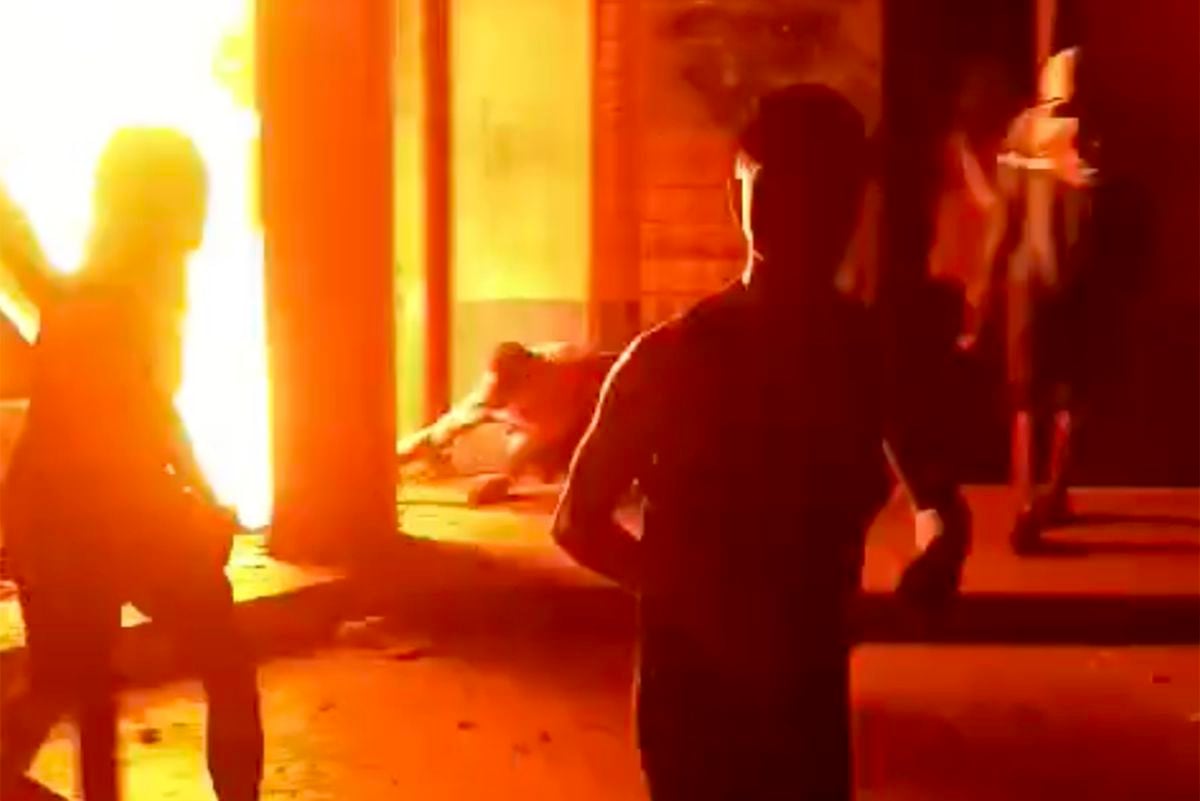When Felipa de Jesús Segundo was sentenced to 50 years for murder, he had to approach his daughter at the end of the hearing to ask what had happened.
"Guilty of murder, mom," Teresa told him, turned into an improvised interpreter.
Felipa, a 60-year-old indigenous Mazahua, found out a few months ago of his sentence after being behind bars since 2017. He groped into the Almoloya de Juárez (State of Mexico) prison: without speaking Spanish and without access to a translator.
When he learned of the ruling, he did not give credit.
She, who was beaten by her neighbors until she was badly wounded, was charged with a murder that she did not commit.
More information
Marichuy: "Of the indigenous, the Mexican government is only interested in folklore"
Mexico seeks to repair thousands of judicial irregularities with an amnesty law
De Jesús is not alone. His case is a drop of water in the sea of injustices of the Mexican penal system, that Gerardo Martínez, of the Indigenous Professional Center for Counseling, Defense and Translation, there is no place for euphemisms: "It's institutional racism." The figures are only a window that reveals the worst of an endemic problem. In Mexico, 7,011 indigenous peoples are in prison. 85.2% of them (almost 6,000) did not have access to an interpreter. Three out of every 10 are imprisoned without a sentence —which in the best of cases will arrive in about six years— according to data from the National Institute of Geography and Statistics (Inegi) and the Secretary of Security.
All processes are different. But there are patterns that make it clear that when it comes to the indigenous population, decisions are often just as arbitrary. According to the 2016 National Survey of Persons Deprived of Liberty, 99% of these detainees end up in preventive detention. In other words, practically all the arrested indigenous people pass their process in jail without being sentenced. Associations like Asilegal have documented cases of up to 20 years without conviction. José Luis Gutiérrez, general director of the organization, is blunt: "What the authorities hope is that they learn Spanish to speed up the process."
Pedro Gatica learned Spanish behind bars. He was arrested in 1999, accused of murder when he was 16 years old. The judge acquitted him 12 years later. For him it was always utopian that someone approached him to translate everything during his process. Currently, there are only 662 certified indigenous language interpreters: one for every 10 inmates.
María López Guzmán, from the Organization of Translators, Intercultural Interpreters and Managers in Indigenous Languages (Otigli), complains that there are no decent conditions for interpreters: “We also live racist episodes. There are judges who do not believe us when we make an interpretation. And it is clear that we cannot live on this either ”. Professionals like her often have two or more jobs to make ends meet. For each translation they charge an average of five minimum salaries - 616 pesos, about $ 31 - in fees. This means that they do it as an outside job, without social security and often receive the money up to a year later. In Otigli, for example, there are debts from the Federal Judicial Council (the governing body of judges) since 2018.
Members of the civil association Asílegal give workshops to relatives of indigenous people imprisoned in the Penitentiary Center of Iguala, Guerrero.Asílegal A. C
Abuse of preventive detention
The NGOs agree that one of the greatest excesses against indigenous people is the abuse of pretrial detention.
The penalty can be applied to serious crimes such as kidnapping, murder or robbery with violence.
But Dominga González, a 63-year-old Nahua, knew nothing of that.
She only remembers that she prayed with all her might not to die before reaching prison.
González was arrested in her native San Pedro Tlanixco (State of Mexico) in 2007. She was accused of killing a Spanish businessman with whom her community had a conflict over the concession of a river. She spent a decade in jail until she was found guilty. They forced her to sign documents despite being illiterate. He did not have access to an interpreter and slept on the floor. But the first minutes were the hardest. “The policemen took me to a very ugly room. They threatened that if I didn't speak up, they would rape me, ”recalls the activist, acquitted in 2019 for flaws in her process, and after spending 12 years in prison.
Confessions obtained through deception or torture are another of the system's cancers. Like González, the National Human Rights Commission has documented nearly 10,000 similar complaints between 2006 and 2018. For Antonio Lara, from the Zeferino Ladrillero Human Rights Center, there is a very clear “class bias” in the way in which suspects are treated.
But not only the treatment is humiliating, so are the complaints, which often border on the ridiculous. Lara's organization has documented cases of preventive detention against indigenous people for theft of amounts such as 80 pesos [4 dollars]. “What the courts do with the lower classes is sentence, even without evidence. Just to give the impression that crime is being fought, ”he says. This way the judges inflate their chests, according to the indigenous rights defender, is the way in which the law enforcement officers try to hide an uncomfortable reality under the rug: in Mexico, according to official figures, 98% crimes go unpunished.
Many times a prosecutor does not need more than an accusation as sufficient evidence to charge someone. So it was with Felipa de Jesús. Teresa Mondragón, her daughter, still remembers with pain her brother Rodrigo's call in the early morning of September 16, 2017. Her mother had been beaten with stones by some 10 residents of the town of San Diego Suchitepec (municipality of Villa Victoria, State de México), who tried to hang her with her shawl. “We took her to a doctor the next day. And we filed a complaint, "he says on the phone.
The group that attacked De Jesús had rebuked the family after arriving in the neighborhood with a few more drinks.
It was Independence Day.
Three of her children defended her and a fight broke out while she lay badly wounded.
One of the assailants died the next day.
In two weeks, the judge ordered the arrest of Felipa de Jesús, her 59-year-old husband Vidal, and Rodrigo, who was not even in town when it all happened.
To this day, Felipa keeps asking Teresa when she will return home.
The 40-year-old daughter struggles every day to sweeten the situation: "I don't understand what is happening either," she says in a broken voice.
Transfer of inmates to the Tanivet Men's Penitentiary Center, in Tlacolula, Oaxaca.
The amnesty law, a disappointment
When President Andrés Manuel López Obrador published the decree of the amnesty law, the associations of human rights lawyers believed that justice would finally arrive. More than a year later, the legislation has become a dead letter. The norm, announced by the president with great fanfare as a measure of grace, would allow the indigenous people who carried out their process without an interpreter to leave prison, if it is a minor crime. But so far none have succeeded.
The five human rights associations consulted for this report agree on one thing: the amnesty has become an unnecessary bureaucratic spider web. According to the norm, the interested parties must present their case before a Commission that can only resolve it when it meets. According to an investigation by the digital newspaper
Animal Político
, in more than a year, the commissioners have met three times and, so far, only five people have received amnesties since the rule came into force (0.5% of the requests).
Gerardo Martínez, from the Indigenous Professional Center for Counseling, Defense and Translation, does not contain his anger: “It was quite promising. We are disappointed, frustrated and disenchanted. " Martínez has been waiting for more than half a year for the amnesty resolution of eight of his clients, all indigenous. But no one has acknowledged receipt. José Luis Gutiérrez, from Asílegal, goes further: "It has been a missed opportunity for the State to recognize the degree of vulnerability in which it has submerged the indigenous people."
Teresa does not throw in the towel with her mother.
But every day I lose faith a little.
With or without amnesty, she wants to hug Felipa again, who at 60 could hardly serve her half-century sentence for murder.
His voice on the phone is a cry in the desert that resounds in many other families like yours: “We don't ask for anything.
All we want is for justice to be fair ”.
Subscribe here
to the
newsletter
of EL PAÍS México and receive all the informative keys of the current situation of this country



/cloudfront-eu-central-1.images.arcpublishing.com/prisa/ZP4NWHUN7JACK2UZSAHGHFED3E.jpg)









/cloudfront-eu-central-1.images.arcpublishing.com/prisa/KMEYMJKESBAZBE4MRBAM4TGHIQ.jpg)

